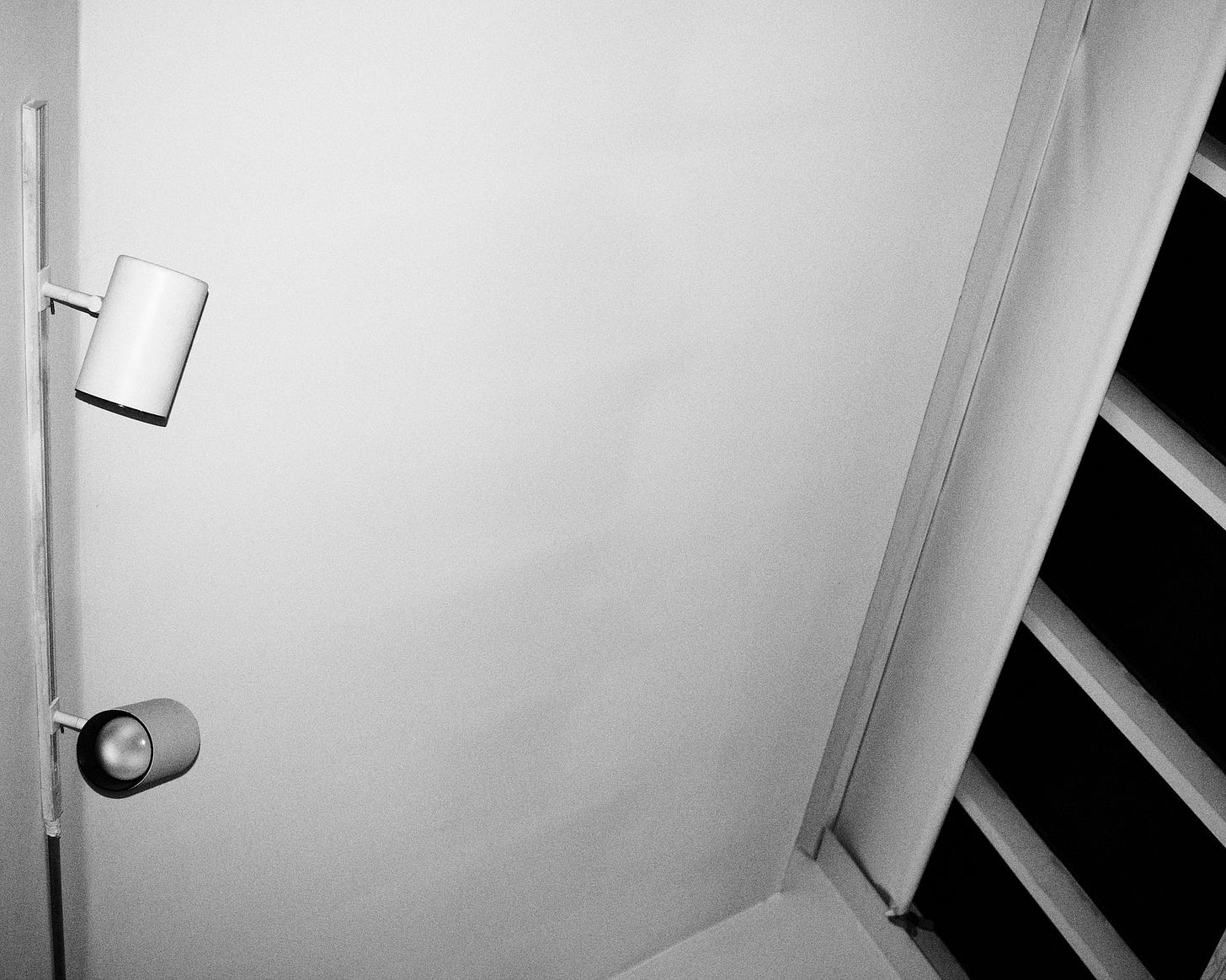On Small Sounds Heard Alone at Night
An essay moving among indistinct shapes.
Perhaps you are walking down the stairs, or perhaps you are just crossing the room. Perhaps you are doing nothing at all in particular. It’s late. Everyone else is asleep.
If you have ever found yourself in this situation, awake in the quiet hours of the night, alone with yourself in your home or some other familiar place, you likely already understand what this essay is about: that is, nothing more or less than the sounds you will hear at the edges of your hearing in these hours of (relative) silence and stillness. They are small sounds, indistinct, indefinite. Clicks, gurgles, pops, hums, scratches and sighs – odd, fleeting impressions which are gone before you can place them, or even be quite certain you heard them at all. They will often happen while you yourself are idly attending to something, hooking its strange weight onto the back of some pedestrian noise and causing the whole contraption to shudder and stall dissonantly – weird faces poking between the slats of an opening door. Just as much, however, they can come on their own, whispering by you in the blankness of a still moment. And you might look out a window, and see the sky outside full of dark.
I’m not speaking of background noise here – the hum of a refrigerator, the gentle thrum of passing cars, anything like that. I grew up near a fire station, so I know how even large, forceful sounds can become just part of the background, the set dressing of life. But the whine of a siren, if you grew up near a fire station, does not disturb you because it is known. You understand what it’s doing out there; it’s expected and accounted for. But the small sounds are not, and this is the problem, the source of fascination. A thud like something heavy falling over half a block away, a squeak like a bit of metal being scratched coming from some forgotten corner of your kitchen – these are sounds for which no explanation is forthcoming, and which investigation is unlikely resolve, and because of this they bring you to a halt, despite their faintness, and linger in your memory while the loud and apprehensible is forgotten.
Aside from it being an annoying concept rendered largely useless by overexposure, “liminality” is, I believe, not useful to evoke here even on its own merits, simply because these sounds are not really suggestive of a border zone, a place of transit or change; quite the opposite: what they suggest is that you may already be deep within a different place, quite unfamiliar, without having ever noticed the transition at all, and it is this which makes them unsettling, and worth considering – they are a reminder that our experiences only ever become truly “ordinary” in retrospect, that we cannot truly be sure of what is in front of our face until we have already turned away from it. Point your attention at anything for long enough and it will always prove more than you bargained for; allow something to recede far enough into the background and it will eventually remind you that you don’t really know what lurks back there.
The thing is, however, by their very smallness they are never anything more than a reminder, either. These sounds demand no response; often no response is even possible, in the moment. They generate, at most, a cautious glance, a tightening of the muscles, nothing more. No true alarm, no drastic action. No matter how unsettling, the small sounds of the night are always too ephemeral for that, so ephemeral that they sit near psychological absolute zero, outside normal cause/effect logics – when you aren’t sure if you heard something, you can’t be sure how you’re responding to it. The negative shape of its absence casts a shadow on your brain, all the larger for the uncertainty of its positive existence, which doesn’t dissipate, usually, until after deep slumber has convinced you that you’re clean again. But are you, really?


